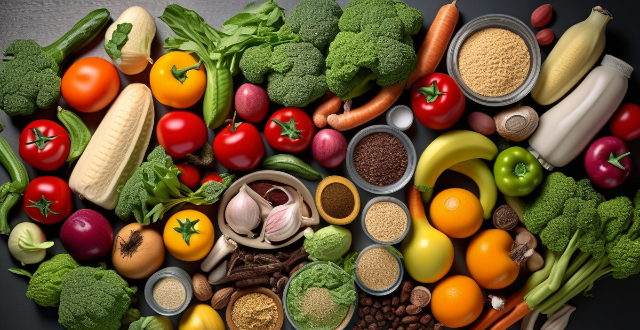Protein is crucial for weight loss, and both vegetarian and vegan diets can provide enough protein to support this process. Vegetarians can get protein from legumes, grains, nuts, seeds, and dairy products, while vegans can rely on legumes, grains, nuts, seeds, and plant-based protein powders. Consuming an adequate amount of protein can help with weight loss by increasing satiety, having a higher thermic effect, and preserving muscle mass. With proper planning, vegetarians and vegans can achieve their weight loss goals while enjoying a healthy and balanced diet.

Can a Vegetarian or Vegan Diet Provide Enough Protein for Weight Loss?
Introduction
Protein is an essential nutrient that plays a crucial role in weight loss. It helps to build and repair tissues, regulate body processes, and maintain a healthy weight. For vegetarians and vegans, the question often arises whether their diet can provide enough protein to support weight loss. In this article, we will explore the protein content of vegetarian and vegan diets and their potential impact on weight loss.
Protein Content in Vegetarian and Vegan Diets
Vegetarian Diets
Vegetarian diets typically include plant-based proteins such as legumes, grains, nuts, seeds, and dairy products. These foods can provide all the essential amino acids needed by the body. Here are some examples:
- Legumes: Lentils, chickpeas, and beans are excellent sources of protein.
- Grains: Quinoa, oats, and brown rice contain moderate amounts of protein.
- Nuts and Seeds: Almonds, chia seeds, and pumpkin seeds are high in protein.
- Dairy Products: Milk, yogurt, and cheese are good sources of protein for lacto-ovo vegetarians.
Vegan Diets
Vegan diets exclude all animal products, including dairy and eggs. However, there are still many plant-based sources of protein available:
- Legumes: Lentils, chickpeas, and beans remain excellent sources of protein for vegans.
- Grains: Quinoa, oats, and brown rice are also suitable for vegans.
- Nuts and Seeds: Almonds, chia seeds, and pumpkin seeds are great options for vegans as well.
- Plant-Based Protein Powders: Soy protein powder, pea protein powder, and hemp protein powder can be added to smoothies or meals for extra protein.
Protein Intake and Weight Loss
To lose weight effectively, it is important to consume an adequate amount of protein. The recommended daily intake of protein varies depending on factors such as age, gender, activity level, and overall health goals. Generally speaking, adults should aim for around 0.8 grams of protein per kilogram of body weight per day. However, this number may be higher for those who are active or trying to lose weight.
Benefits of Higher Protein Intake for Weight Loss
Increasing protein intake can help with weight loss in several ways:
1. Increased Satiety: Protein takes longer to digest than carbohydrates or fats, which can help you feel fuller for longer periods of time.
2. Higher Thermic Effect: Your body burns more calories digesting protein than it does digesting other macronutrients.
3. Muscle Preservation: Consuming enough protein while losing weight can help prevent muscle loss and maintain metabolic rate.
Conclusion
Both vegetarian and vegan diets can provide enough protein to support weight loss when properly planned. By incorporating a variety of plant-based protein sources into your meals and snacks, you can ensure that you are meeting your daily protein needs. Remember to focus on whole, unprocessed foods and consider adding plant-based protein powders if necessary. With careful planning and attention to detail, vegetarians and vegans can achieve their weight loss goals while enjoying a healthy and balanced diet.